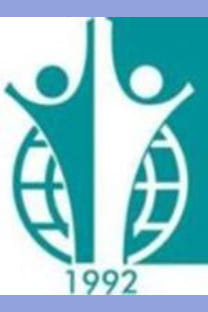SAVUNMA PROJELERİNDE RİSK ODAKLI İÇ DENETİM; İHTİYAÇ ANALİZ SÜRECİNİN DEĞERLENDİRİLMESİ: TECRÜBESEL BİR YAKLAŞIM
Savunma ihtiyaçlarının çok farklı olması, değişen konseptler muvacehesinde giderek karmaşıklaşması, tedarikçilerinin çeşitlenmesi ve tüm bu ve buna benzer faktörlerin maliyetlere yansıması, kaynakların etkili ekonomik ve verimli kullanılmasını zorunlu hale getirmektedir. Kaynakları etkili kullanabilmenin yolu ise ihtiyaçların doğru tanımlanmasından geçmektedir. Bir savunma projesi geliştirilirken; performans, süre ve maliyet hedeflerinin tamamı gerçekleştirilmiş olsa da ihtiyaç doğru belirlenmemişse ve tanımlanmamışsa kaynakların etkili kullanımından söz etmek mümkün değildir. İç denetim, kaynakların etkili ekonomik ve verimli kullanılması için süreçlerin risk, kontrol ve yönetişim üçlemesi perspektifinden değerlendirilmesi ve yöneticilere stratejik bakış açısı sunması ile örgüt için temel destek fonksiyonudur. Bu çalışmanın amacı; iç denetim fonksiyonunun savunma projelerinin ihtiyaç belirleme sürecini risk odaklı yaklaşım ile nasıl denetleyebileceğini ortaya koyabilmektir. Bu çalışmada öncelikle doküman analiz yöntemiyle uluslararası uygulamalardan da istifade etmek suretiyle savunma sistemleri ihtiyacının nasıl belirlendiği incelenmekte, risk odaklı iç denetim yaklaşımının özellikleri anlatılmakta müteakiben de ihtiyaç belirleme sürecinin riskleri, kontrolleri ve bu kontrollerin nasıl test edileceği sistem denetimi yaklaşımıyla analiz edilmekte, sonuç ve önerilerde bulunulmaktadır. Çalışmada ayrıca çeşitli savunma projelerinin yürütülmesi esnasında elde edilen kazanımlardan ve derslerden de istifade edilmektedir.
Anahtar Kelimeler:
SAVUNMA PROJESİ, İÇ DENETİM, RİSK
RISK FOCUSED INTERNAL AUDIT IN DEFENSE PROJECTS; ASSESSMENT OF THE NEEDS ANALYSIS PROCESS: AN EXPERIENTIAL APPROACH
The fact that to be very different and increasingly complex in terms of changing concepts of defense needs and diversification of suppliers and the reflection of all these and similar factors on costs make it necessary to use resources effectively, economically and efficiently. The way to use resources effectively is through the correct definition of needs. While developing a defense project; although the performance, time and cost targets have all been achieved, if the need is not determined and defined correctly, it is not possible to talk about the effective use of resources. Internal audit is the main support function for the organization by evaluating the processes from the perspective of risk, control and governance trilogy and providing managers with a strategic perspective for the effective economic and efficient use of resources. The aim of this study is; to demonstrate how the internal audit function can audit the needs determination process of defense projects with a risk-oriented approach. In this study, firstly, the document analysis method examines how the defense systems needs are determined by making use of international practices, the features of the risk-oriented internal audit approach are explained, and then the risks and controls of the needs determination process and how these controls will be tested are analyzed with the system audit approach and finally results and recommendations are made. . The study also benefits from the gains and lessons gained during the execution of various defense projects.
Keywords:
DEFENSE PROJECT, INTERNAL AUDIT, RISK,
___
- Beasley, M., Clune, R. ve Hermanson, D. (2005). Enterprise risk management: An empirical analysis of factors associated with the extent of implementation. Journal of Accounting and Public Policy, 24(6), 521–531.
- Bou-Raad, G. (2000). Internal auditors and avalue-added approach: The new business regime. Managerial Auditing Journal, 15(4), 182-186.
- Boulton, R.,Libert, B., ve Samek, S. (2000). Cracking the value code, Harper Collins Publishers, New York.
- ISSN: 1303-0027
- Yayın Aralığı: Yılda 2 Sayı
- Başlangıç: 2001
- Yayıncı: Dokuz Eylül Üniv. İşletme Fak.
Sayıdaki Diğer Makaleler
ULUSLAR ARASI FRANCHISING BİÇİMİNİN SEÇİMİNDE İLİŞKİNİN VE STANDARTLAŞTIRMANIN ROLÜ
COCOSO YÖNTEMİ İÇİN NORMALİZASYON PROSEDÜRLERİ: FARKLI SENARYOLAR ALTINDA KARŞILAŞTIRMALI BİR ANALİZ
ORTA GELİR TUZAĞIYLA MÜCADELEDE ÇIKIŞ STRATEJİLERİ VE BÜTÇE POLİTİKALARI: TÜRKİYE ÖRNEĞİ
TÜRKİYE VE AVRUPA TURİZM SEKTÖR LİDERLERİ ENDÜSTRİ İÇİ TİCARET ANALİZİ
